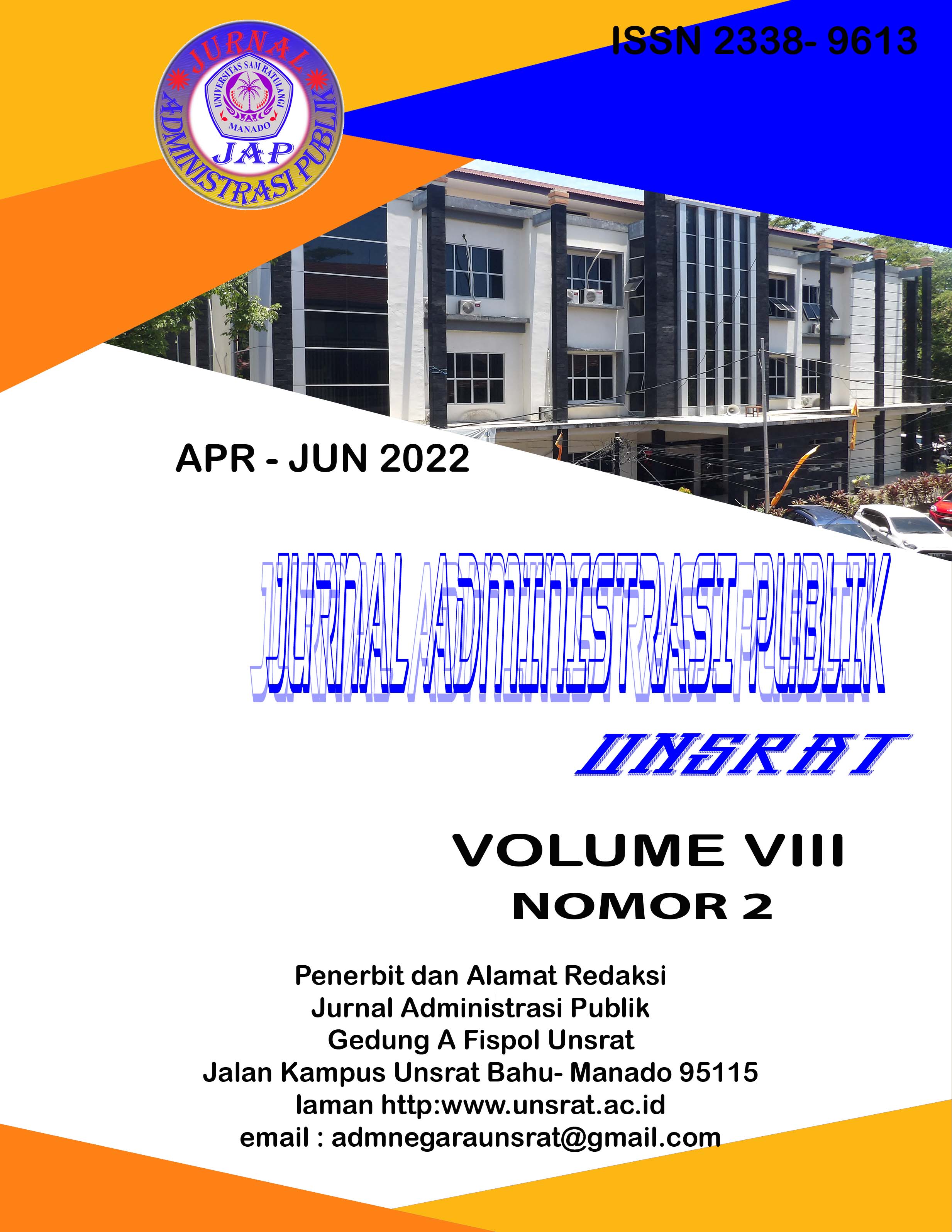EFEKTIVITAS PROGRAM KAMPUNG KELUARGA BERENCANA (KB) DI DESA TEMBOAN KECAMATAN MAESAAN KABUPATEN MINAHASA SELATAN
DOI:
https://doi.org/10.35797/jap.v8i2.40321Abstract
The purpose of this study was to determine and describe the effectiveness of the Family Planning Village(KB) Program in Temboan Village, Maesaan District, South Minahasa Regency. This research is
descriptive with a qualitative research approach. The data collection technique used is by observation or
going directly to the field, interviews with research informants, and documentation of existing research.
The theory used is the theory of Richard M. Steers regarding the measure of effectiveness and the
indicators that influence effectiveness, namely goal achievement, integration, and adaptation. Based on
the results of existing research, it shows that the effectiveness of the Kampung KB Program in Temboan
Village, Maesaan District, South Minahasa Regency can be said to have been effective. However, there
are still some obstacles in the implementation of the Kampung KB program, namely Human Resources
(HR) from some communities which are still lacking, resulting in a misunderstanding of the Kampung KB
program, the socialization process is not yet mature in its preparation and implementation, and there are
still facilities. and infrastructure to be added. The suggestion from the researcher is to pay more attention
to the existing socialization process for more mature preparation and implementation so that the
community can understand correctly the KB Village program. As well as for the facilities and
infrastructure, it must be equipped so that the existing data can be pasted in the right place, namely My
Data House.
Keywords: Effectiveness, Family Planning Village Program, Community
Downloads
Published
2022-04-26
How to Cite
MALEKE, T. S., PANGKEY, M., & TAMPONGANGOY, D. (2022). EFEKTIVITAS PROGRAM KAMPUNG KELUARGA BERENCANA (KB) DI DESA TEMBOAN KECAMATAN MAESAAN KABUPATEN MINAHASA SELATAN. JURNAL ADMINISTRASI PUBLIK, 8(2), 105–114. https://doi.org/10.35797/jap.v8i2.40321
Issue
Section
artikel








